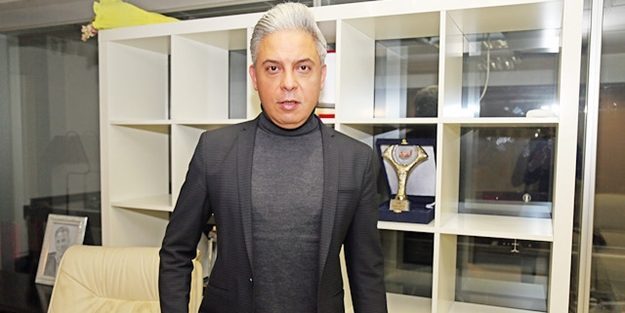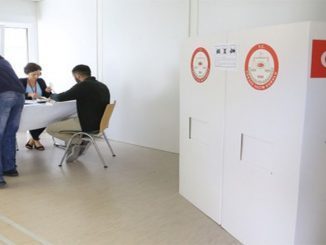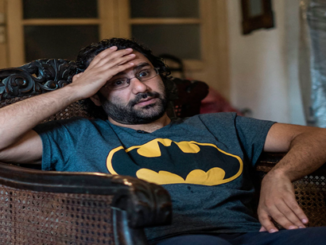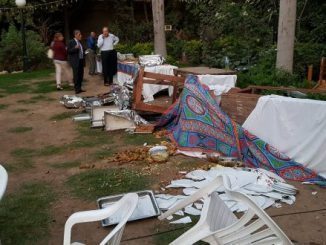
In pursuit ond persecution of Egyptian opponents and their families both inside and outside Egypt, a pro-regime lawyer, Tariq Mahmoud, has filed a complaint to the Egyptian Prosecutor-General’s office, accusing TV anchor Moataz Matar and his brothers, accusing them of forming a “terrorist” cell that works against the State.
The complaint accused Matar and his family of inciting people against the Egyptian State, its institutions and its leaders, in collaboration with the Muslim Brotherhood, that was outlawed by the current regime immediately after the military coup led by General Abdel Fattah Al-Sisi against the country’s first democratically elected president Mohamed Morsi in 2013.
In his complaint to the Prosecutor-General, No. 5298 of 2019, Mahmoud said that Moataz Matar, who has been presenting a TV program on Al-Sharq satellite channel, based in Turkey in Turkey since he left Egypt following the coup d’etat of 2013, formed a terrorist cell together with his brothers that is aimed at harming the country’s highest interests, inciting against Egypt and its institutions, spreading chaos in the country, undermining social security and peace and destabilizing the country’s internal security.
Matar has recently launched a campaign under the Arabic hashtag: اطمن_انت_مش_لوحدك# (Be assured, you are not alone) through his TV program “With Moataz” on Al Sharq satellite channel. The campaign is a completely peaceful move, calling on people to express their opposition to the constitutional amendments on agreed time in a safe manner, sparing them the oppression of regime and helping them restore self-confidence after fear had filled their hearts.
The complaint against Matar also accused him of passing orders he receives from parties hostile to the Egyptian State, Qatari and Turkish intelligence services and Muslim Brotherhood leaders, to his brothers to work against their homeland.
The regime targeting opponents and their families
Moataz Matar’s family had been arrested and forcibly disappeared by Abdel Fattah al-Sisi’s regime, in a new chapter of dictatorship, chasing and detaining families of political opponents.
Early March, Matar said eight of his family members, including four children, went missing in Cairo. The disappearance occurred a day after security forces raided and searched the home of Matar’s 66-year-old mother at dawn.
“After what happened to my mother yesterday… two of my brothers alongside their wives and four of their children have disappeared after leaving al-Ahly sports club in Nasr city less than an hour ago,” Matar wrote on Twitter.
The TV host, who was sentenced to 10 years in absentia in 2015 for “inciting” against the government, had been urging activists to spread a message of solidarity by writing, “Be reassured you are not alone” (#اطمن_انت_مش_لوحدك) on paper money.
Many anti-government advocates from inside and outside Egypt took to social media to post photos of paper money with the phrase written on it.
The move prompted Egypt’s Central Bank to ban banknotes with writing on them.
Matar appeared defiant after announcing on air that his family members were disappeared. “Be sure that we will continue and proceed [with our activism],” he said.
Matar’s campaign came in support of 34-year-old Ahmed Mohy, a lone protester who was arrested last week for holding up a sign that read “Step down Sisi” in Tahrir Square, the home of the 2011 Arab Spring uprising. Mohy published a video of himself whilst in the back of a police van.
Human rights groups have accused the Egyptian authorities of using forced disappearances to stifle political dissent and silence voices opposing the government.
Last year, Egyptian lawyer and activist Ezzat Ghoneim went missing after he was released from detention, raising concerns that he was abducted by security forces.
“Forcibly disappearing a lawyer in the face of a judge’s order explicitly authorizing his release reflects the Egyptian security forces’ contempt for the rule of law,” Michael Page, deputy Middle East and North Africa director at Human Rights Watch, said in a statement last October.
“Egyptian authorities should immediately reveal Ghoneim’s whereabouts, set him free, and investigate and punish those who disappeared him.”
Amnesty International has also accused Egyptian authorities of using the tactic against dissidents.
“The authorities used torture and other ill-treatment and enforced disappearance against hundreds of people, and dozens were extrajudicially executed with impunity,” the group said in a report last year.



